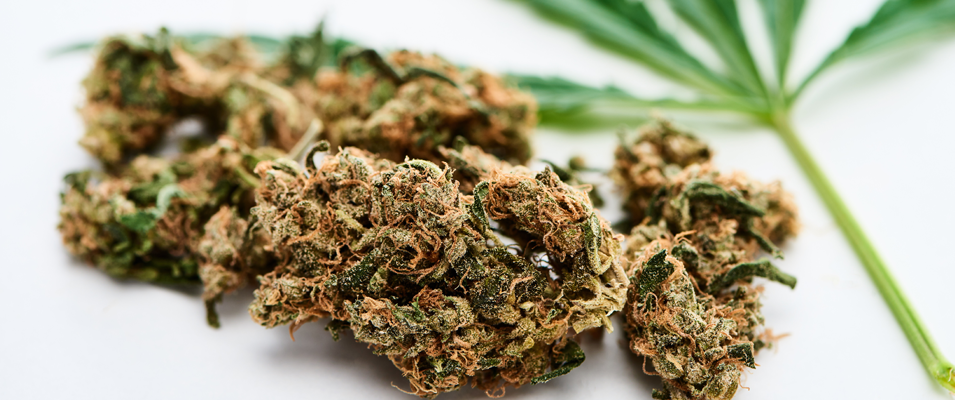
On Tuesday, November 26, Niverville residents will undertake a plebiscite to decide whether retail cannabis sales should be allowed in the community. Voting will take place at the Town Administrative Office at 329 Bronstone Drive between 8:00 a.m. and 8:00 p.m. Residents also have the option to vote in advance at the town office on Monday, November 18. The Citizen encourages everyone to vote!
Some seem to have the impression that we are voting about the medical use of cannabis. In actuality, access to medical cannabis has been legally established by Health Canada since July 2001. Granted, it has been restricted to mail-order purchases from licensed providers, but prior to October 2018 this had already spurred the proliferation of cannabis dispensaries that have operated with impunity.
Physicians have long been able to prescribe medical cannabis if they feel comfortable with it, and no doctor has ever faced prosecution for prescribing medical cannabis, nor have the cannabis dispensaries been prosecuted. I support the legalizing of these dispensaries for medical purposes, but even some who have operated these dispensaries are opposed to those who are now setting up retail cannabis stores.
What is the difference between a cannabis dispensary and a cannabis store? A cannabis dispensary is a storefront operation that sells marijuana to customers who have a medical need. Most purchases require a doctor’s prescription or note from a medical professional, but others are less strict.
A cannabis store, on the other hand, is oriented to the non-medical, recreational segment, and appeals to customers who want specialized products for recreational use, particularly esoteric products that appeal to youth who are in danger of getting hooked into lifelong habits. This helps the cannabis industry long-term, but it does not protect the cognitive development of those under 25.
The Town of Niverville’s notice for the July 23 public hearing referred to a proposal “to allow for a retail cannabis store.” Yet the cannabis advocacy signs around town tell us to vote “for the cannabis dispensary.” Is this plebiscite about a dispensary for medical purposes or for a store that is oriented towards recreational purposes? The actual plebiscite question asks, “Should licensed retail cannabis stores be allowed in Niverville?”
Unfortunately, cannabis stores are not diminishing the black market in any convincing way. A year after Canada introduced the legal cannabis market, a vibrant black market for weed remains. It is not the occasional users but the heavy users who drive cannabis-market economics, and this is a major obstacle in converting illegal sales into legal ones. Heavy users will stick to the less expensive illicit, tax-free market.
Blair Longley, the leader of the Marijuana Party since 2004, does not see present legalization laws as a victory, but as far too restrictive. Big corporations now influence the legal industry, and they are going to need to listen to Blair and press for fewer and fewer restrictions if the industry is going to make a profit that can compete with the black market. This, in turn, will increase the likelihood of cannabis getting into the hands of adolescents, despite the fact that it was the original intention of the Cannabis Act to diminish these odds.
Yet the precise legal status of cannabis is less important than the public understanding of both the benefits and risks. Some have assumed that because recreational pot is now legal in Canada, licensing a cannabis store should be as routine as licensing a shoe store or a gift shop.
This totally ignores the flaws of the present law in view of the neurotoxic effects of recreational cannabis on the developing brain for those under 25, and particularly for those who are under 21. Other jurisdictions, like Colorado, had the foresight to make 21 the legal age for pot consumption. In Canada, we have made 18 the legal age. This leaves a growing generation increasingly vulnerable.
Clearly, medical marijuana has relieved medical patients from troubling symptoms, but there’s a big difference between people who use cannabis medically, when they are actually suffering or are handicapped, and those who use the drug recreationally without regard to the risks of impairment in cognitive functioning.
I do not at all dispute that occasional use of marijuana by people over 25 is generally safe. Of concern, however, is the fact that casual use of cannabis has risen only moderately over the last decade while heavy use has soared dramatically among those under 25. The Canadian Medical Association notes that youth and young adults are among the highest users of cannabis. From a health perspective, the focus needs to be on protecting the developing brain of adolescents and young adults.
To get to the root of social alienation between the generations, we need loving family environments that children will not need to heal from. There is no substitute for spending quality time with others until heart-to-heart connections take place. I am learning that with patient love, even FAS children can build new pathways in their brain.
There is a vacuum in every personality that needs to be filled with something beyond any material or impersonal substance. The opposite to addiction is connection. We need more connection and loving relationships that can heal human brokenness and social alienation. Regardless of the outcome of this plebiscite, let’s all pull together for Niverville, and make staying connected as a vibrant community with strong families our most important vote!



















